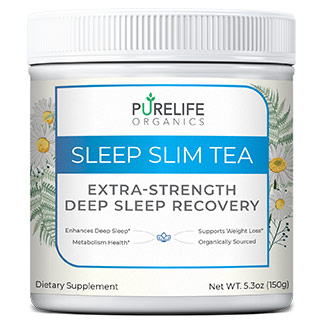The body has a built-in system called the circadian rhythm, which is responsible for regulating sleepiness and wakefulness over a 24-hour period (the time it takes for the Earth to circle the sun).
The circadian rhythm usually emerges between two and six months after birth, and is controlled by the area of the brain that responds to light and receives input direct from the retina in the eye. It causes wakefulness to fluctuate through the day, and then, as darkness falls, it encourages sleepiness.
If we go to bed and rise at a regular time, we will help ourselves create and maintain a balanced circadian rhythm. It is easily disrupted by changes in sleeping or waking patterns, perhaps caused by shift work, late nights at weekends, traveling across time zones, stress, or illness. We can strengthen our circadian rhythm by following good sleeping habits
Our circadian rhythm can change over time. When we are younger we are more likely to be “night owls,” staying up and rising later, and as we get older we are more likely to go to bed and rise earlier.
The circadian rhythm plays a role in some important systems that influence our sleeping habits, such as how much melatonin (see opposite) the body produces. It also regulates our core body temperature, so that it increases during the day and drops at night as we fall asleep. This then plays a role in helping us to stay asleep (hence the importance of maintaining a cool room). Our temperature usually begins to rise again at about 4am as we start to move from sleep to waking.
MELATONIN
Melatonin is a hormone that helps to regulate our sleep/wake cycle. Its production is influenced by the circadian rhythm and the amount of light we are exposed to. Melatonin is released in the dark and suppressed by light. Therefore the level is at its lowest first thing in the morning, and rises toward evening as darkness falls. It remains elevated through the night—helping us to sleep—but then falls in the early morning.
The long, dark nights and shorter days of winter affect the production of melatonin, and that can result in changes to our mood and energy levels (known as seasonal affective disorder or SAD). Melatonin is also degraded by stress, which is a common trigger for sleep problems.
Melatonin can also be taken as a pill, and is available over the counter in the USA and elsewhere. However, in the UK it is available exclusively by prescription as a short-term sleeping aid only, and is not recommended for those under the age of 55.
WHAT STOPS US FROM SLEEPING?
AGE
As we get older, our total sleep time and the period we spend in deep Slow Wave Sleep decreases. Since we are less likely to be woken by external stimuli when we are in deep sleep, the number of times we wake up increases and sleep becomes fragmented. Once we are awake it also takes us longer to fall back to sleep. This may all be caused by lifestyle changes, such as retirement, as well as increased health problems and the side effects of medication, but many people find that they need less sleep as they become older, too. Women may experience night sweats and poorer sleep overall with the onset of the menopause.
MEDICAL DISORDERS
Those that affect sleep include apnea (when a person’s airway becomes blocked or obstructed, resulting in shallow breathing or even a temporary stop in breathing, which disrupts sleep), mental-health disorders such as depression and anxiety, obesity, and pain.
WORK
Shift work can be particularly disruptive, but working long or irregular hours can adversely affect the body’s natural rhythms.
ENVIRONMENT
This might be a room that is too warm, external noise (airplanes, neighbors, traffic), or perhaps a snoring partner or one who also has difficulty sleeping.
TRAVEL
Crossing time zones disrupts our internal body clock, which regulates sleep and waking.
LIFESTYLE
Partying late, watching the latest box set, or spending long hours at a computer, plus drinking alcohol or caffeine or taking other stimulants are all factors that can affect sleep. Plus, when we have trouble sleeping, we may inadvertently employ strategies that make it worse, thereby fueling rather than reducing our sleep debt.
Alcohol
Many of us enjoy a drink or two as a way of winding down at the end of a long and stressful day, or perhaps to self-medicate against chronic aches and pains. However, although alcohol might help us to get to sleep initially, an alcohol-induced sleep will be lighter and more fragmented. This blocks the early, most restorative stages of sleep and inhibits the release of growth hormones that occur during the night.
As alcohol levels in the blood drop, we are more likely to experience periods of wakefulness. In addition, alcohol is a diuretic, so it will also disrupt our sleep by increasing the need to urinate during the night. If you or your partner snore or suffer from sleep apnea, this condition may be exacerbated by alcohol.
Caffeine
Coffee is often the go-to drink to kick-start the morning, and there is no doubt that it can help to wake us up. It stays in the body for 12 hours, however, so drinking coffee or other caffeinated drinks during the day or in the evening inhibits and disrupts the body’s self-regulating wake/sleep systems for longer than you might think.
Caffeine can also be found in chocolate, black tea, energy drinks, and many sodas. The last is particularly significant for children and teenagers, and so should be reduced in the evening as part of a good sleep hygiene routine.
How caffeine affects us may change as we get older. I used to be able to drink coffee after an evening meal, but now late afternoon is my cut-off point.
It is worth reviewing your habits and behavior periodically so that you can respond to your changing requirements.


